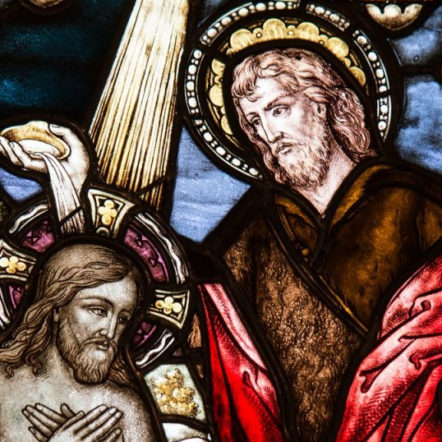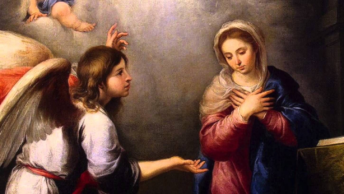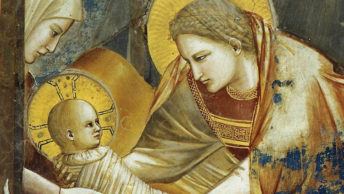Is John the Baptist, with his blunt and searing message, to be the one to whom we should pay attention as we try to find a way to celebrate Christmas as we think it deserves to be celebrated?
Inflation, threats of crippling strikes, political instability in many countries, global crises make our hearts quite insecure.
Well, while it is obvious that we are far from living through ideal conditions, we should consider the Church’s wisdom and focus our attention and our energies on the much higher plateau suggested by John.
First, the significance of the DESERT. The history of salvation shows us how the desert is the sacred place in which God molds, purifies, trains, and cares for his chosen people.
It is also in the desert where, away from all distractions, his people are forced to listen to him and to rely on him as their only source of life.
Getting older, I have grown in appreciation of the need, from time to time, for a “desert,” for silence, for turning off all the sounds of our bustling world, of our vengeful, warring world, of our frightened and insecure world—and REST in God.
Perhaps the worst “noise” we need to silence comes from our fretting hearts.
Secondly, John’s message: REPENT. It could not be any starker in its simplicity.
It basically means that we should borrow some of John’s intensity and wisdom, and realize the futility, the danger of working hard, of toiling, of planning our future apart from God, or, even worse, away from God.
REPENT calls for us to come to a screeching halt and scrutinize our dreams, our plans, our aspirations, all our choices, including the path of our spiritual journey.
Thirdly, the OUTFIT and the DIET. John wore clothing made of camel’s hair and had a leather belt around his waist. His food was locusts and wild honey. Wow! There aren’t too many TV commercials about this type of apparel and we westerners find gross eating locusts.
John’s spartan choices lead us to wonder if we would ever be satisfied with life’s essentials. TV commercials and other forms of advertisement have created in us new needs that are not really needs. While it might be convenient to have certain things available, we must remain convinced that lasting happiness is not to be found in them.
Some of them can lead us away from God, away from life.
Fourthly, the REACTION: at that time Jerusalem, all Judea, and the whole region around the Jordan were going out to him.
The need for God must be so compelling that we feel the need to flock to where God can be found and where his voice can be heard for sure.
Finally, and of the most crucial importance: we must be aware of the deadly danger of PRESUMPTION.
Our true and fruitful return to God must begin with the shedding of all presumptions.
John penetrates our very soul with his no-nonsense message.
He refuses to let us go through the pious, traditional Advent “window dressing” which does not get to the root of our tension, dissatisfaction, and restlessness.
John insists that we identify by name and kind each one of our habitual and/or “favorite sins,” avail ourselves of the Sacrament of Reconciliation to turn our back on them all with steely resolve, and full reliance on God’s grace.
The Pharisees and the Sadducees were two groups of very pious people, yet quite dissimilar in their behavior, status, aspirations, and religious expressions. What triggered anger and condemnation from John the Baptist was their presumption of being a notch or two above the rest. They presumed to deserve special treatment from God on account of what appeared on the outside as irreproachable behavior. They presumed that their knowledge, their piety, their status, their being children of Abraham was enough to please God.
My dear friends in Christ, how does presumption reveal itself in us?
Well, when was the last time we truly named our sins, individually? Confessed them to a priest? Were truly sorry for them? Promised with God’s grace to change our life radically, completely, dramatically?
If we do not want or cannot answer these questions because we have not been in the “desert,” in a silent place in a while, we can ask ourselves the question suggested by John: name the good fruit that we have borne…
The more fruits we can mention the less presumptuous we would be.
The fruits we are to bear are mentioned by Isaiah (11:1-10): they are the life-program of the shoot sprouting from Jesse’s stump. They are the fruits of love and self-sacrifice that are required of all those who are one with Jesus, the shoot from Jesse’s stump.
May today be the day in which we return to our God with our whole heart and begin to bear generous fruits in intimate oneness with Christ our Lord.
Can you think of a better way to prepare for Christmas?








